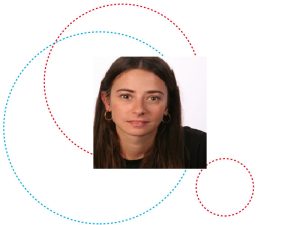PhD student Claudia Bandiera supervised by Prof. Viti and belonging to the FNR Bridges Maas4All, received the Mitacs Globalink Research Award (GRA) for research in Canada. This grant will allow her to spend 3 to 4 months at the Université de Montréal, hosted by Prof. Emma Frejinger where she will be able to work on her project “Mobility-as-a-Service Equilibrium in Large-Scale Networks”.
What does this award represent to you ?
When the International Relations Office of the University of Luxembourg sent an email introducing the MITACS scholarship, I immediately felt that it was an once in a lifetime opportunity. I first discussed about this program with my Professor Francesco Viti who found very interesting the idea of me connecting with an international and prestigious university such as the University of Montreal. I applied, and a couple of weeks ago, I received the Mitacs Globalink Research Award! It was such a joy because for me, it is an important achievement and an extraordinary experience that will enrich my academic background. To have the possibility to spend 4 months in another important research group of the Department of Computer Science and Operations Research at the Université de Montréal experienced in demand forecasting and optimization of transportation networks, will be a boost for my PhD and will help to improve my level of academic contribution in the transportation field.
Please explain briefly what your research is about ?
My research is part of the MaaS4All project, funded by Fonds National de la Recherche Luxembourg (GN: 13769009). It is focused on a new transportation concept called Mobility-as-a-Service (MaaS). MaaS is seen as an innovative transportation concept that tries to move this system from car-centered to multimodal and shared mobility solutions. This new tool is usually introduced in the market through a mobile application, in which travelers can buy monthly packages based on the modes of transport that they often use. Behind this app multiple mobility companies (carsharing, bike-sharing, public transports, etc.) have to find commercial agreements in order to sell their single service to travelers and have a personal profit. Through this research project, we want to develop a model that can understand the behavior of different actors present in a MaaS system. The model will be able to detect in which conditions all suppliers have a profitable service and users are satisfied with their modal choices. The final aim of the project is to apply the model to a real case scenario, where the MaaS app will be launched in Luxembourg.
You will be spending a few months at the Université de Montréal. How will you allocate your time?
I will stay at UdeM almost 4 months (01/09/22 to 23/12/22). The MaaS model that we have currently developed is applicable to few zones of a city. Thanks to the experience of the research group UdeM has in large-scale networks, we will study how to expand my current model to a real size network (at city level) trying to keep the same level of accuracy and reducing the complexity of its representation.
